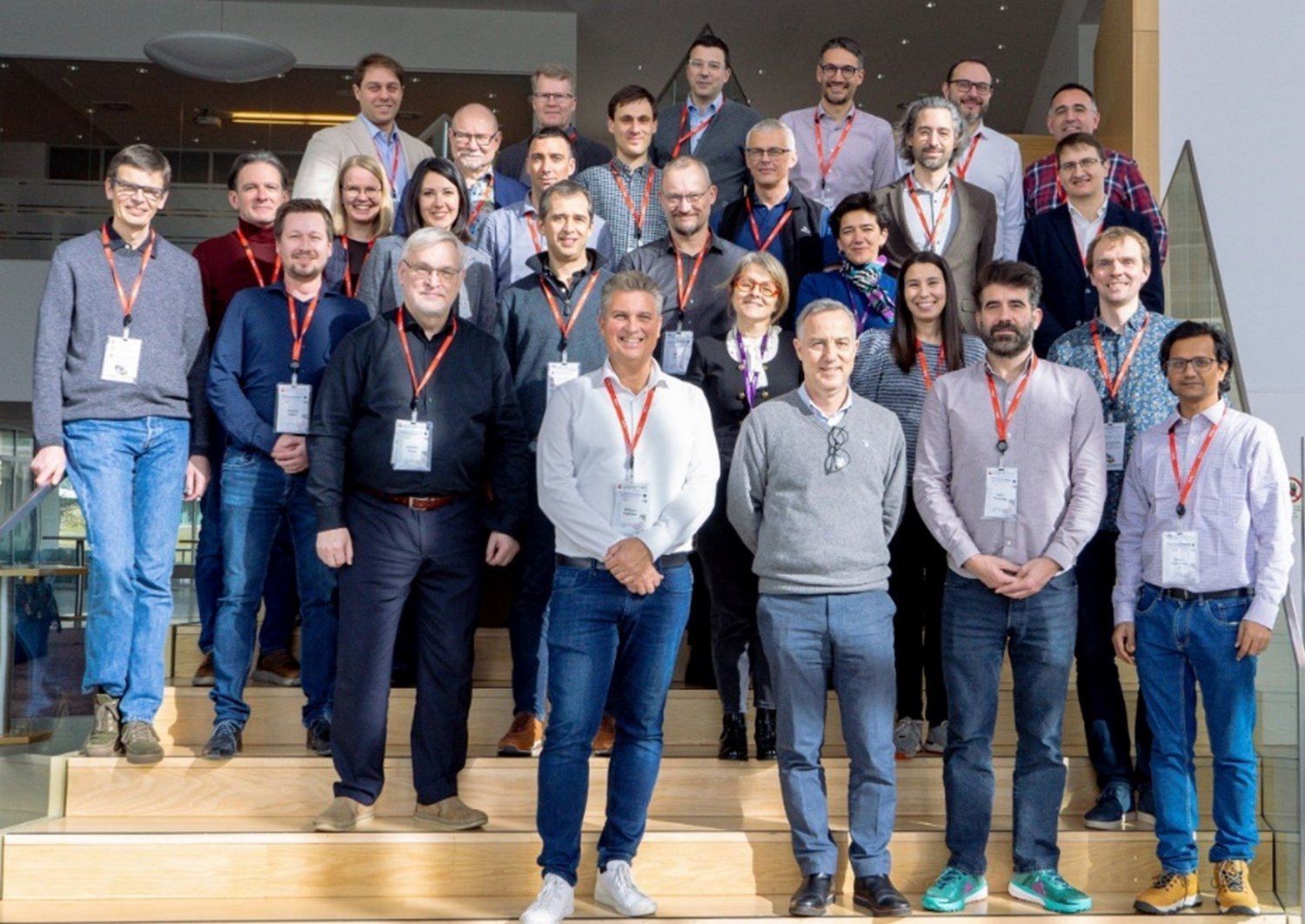Graz, 04/30/2025 — A consortium of 12 European partners, coordinated by imec (Belgium), has been selected in the framework of the European Chips Act to develop the EU Chips Design Platform. Funded by Chips JU, the platform will facilitate access to advanced semiconductor design infrastructure, training, and capital for fabless semiconductor startups, small and medium enterprises and research organizations. By providing the necessary resources, the initiative aims to democratize and foster semiconductor innovation across Europe, specifically for chip design.
Democratizing semiconductor innovation across Europe
The semiconductor industry is the backbone of modern technology, powering everything from smartphones to advanced medical devices. With the EU Chips Act, Europe is dedicated to increasing its global semiconductor market share. Besides the launch of European pilot lines that aim to develop key technologies for semiconductor innovation, the EU Chips Act has proposed the EU Chips Design Platform as a vehicle to support the growth of fabless chip companies in Europe.
The EU Chips Design Platform will enable fabless companies to access the resources they need quickly and efficiently via a cloud-based virtual environment, offering chip design resources, training, and capital. Coordinated by imec, twelve key European research players in the semiconductor ecosystem have joined forces in a consortium to create this design platform.
Low-barrier access to chip design
The platform aims to onboard the first startups and small and medium enterprises by early 2026, providing them with low-barrier access to European design capabilities, including route-to-chip fabrication, packaging, and testing. It will offer customized support to access commercial electronic design automation (EDA) tools, intellectual property (IP) libraries, EU Chips Act pilot line technologies, and access to design IP repositories, including open-source options. Additionally, the platform will feature a startup support program with incubation, acceleration, and mentoring activities as well as financial assistance to help early-stage companies turn their innovative ideas into reality.
Austrian participation fosters national semiconductor ecosystems
SAL's expertise in IC (Integrated Circuit) design and cutting-edge research will play a pivotal role in this transformative initiative, driving growth and investment in the Austrian semiconductor ecosystem. The Austrian research center is instrumental in defining and setting-up the whole platform, selecting users, providing support and training, and offering open-source Electronic Design Automation (EDA) tools.
The EU Chips Design Platform has the potential to stimulate the creation of semiconductor enterprises and expand activities in companies that previously did not consider semiconductor ventures due to investment or know-how barriers. Additionally, it fosters and harmonizes the Austrian semiconductor ecosystem, integrating the Chips Act initiatives of the Chips Competence Centers, Pilot Lines, the Design Platform, as well as Research and Technology Organizations (RTOs), industry, and academia.
“The EU Chips Design Platform will revolutionize access to IC design and fabrication, breaking down barriers of cost and expertise. SAL's role is to implement effective and sustainable strategies to ensure the platform operates seamlessly – from the system concept to the silicon product,” says Emanuele Bottino, Senior Staff Research Engineer and Project Leader at SAL.
International Platform Coordination Team
The Platform Coordination Team of the EU Chips Design Platform consists of imec (Belgium), the French Alternative Energies and Atomic Energy Commission (CEA, France), Fraunhofer (Germany), Leibniz Institute for High Performance Microelectronics (IHP, Germany), Silicon Austria Labs (Austria), Fondazione Chips-IT (Italy), Spanish National Research Council (CSIC, Spain), International Iberian Nanotechnology Laboratory (Portugal), Eindhoven University of Technology (the Netherlands), Tampere University (Finland), CTU (Czech Republic) and AGH University of Krakow (Poland). The grant agreement with Chips JU, through the European Union’s Digital Europe program, is ongoing and will be signed later this year. The project will run from 2025 until the end of 2028.
Follow the European Chips Design Platform LinkedIn page for more updates.
ABOUT SILICON AUSTRIA LABS (SAL)
Silicon Austria Labs GmbH (SAL) was founded in 2018 as a top non-university research center in the field of Electronics and Software Based Systems. At its locations in Graz, Villach and Linz, research is conducted on key technologies in the fields of Microsystems, Sensor Systems, Power Electronics, Intelligent Wireless Systems and Embedded Systems. SAL brings together key players from industry and science and thus valuable expertise and know-how, and conducts cooperative, application-oriented research along the value chain. The aim is to accelerate the value creation process from idea to innovation – with excellent research and economic benefits. Owners are the Republic of Austria (50.1%), the Provinces of Styria and Carinthia (10% each), the Province of Upper Austria (4.95%) and the Association for the Electric and Electronics Industry (24.95%).
Contact:
Silicon Austria Labs GmbH
Isabella Preuer, BA BA MA
Head of Communications & PR
+43 664 832 97 73
press@silicon-austria.com
https://silicon-austria-labs.com/en/press-downloads





